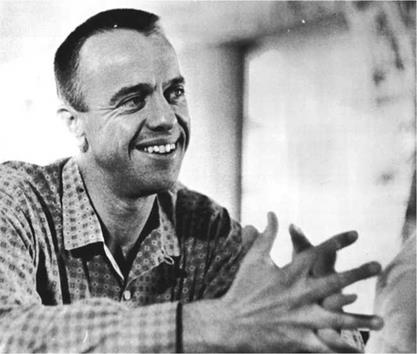RESULTS OF POST-FLIGHT MEDICAL EXAMINATIONS
A comprehensive report on the pre-flight and post-flight medical condition of Alan Shepard was prepared by:
• Carmault B. Jackson, Jr., M. D. Aerospace Medical Branch
• William K. Douglas, M. D., Astronaut Flight Surgeon
• James F. Culver, M. D., USAF Aerospace Medical Center, Brooks AFB, Texas
• George Ruff, M. D., University of Pennsylvania
• Edward C. Knoblock, Ph. D., Walter Reed Army Medical Center
• Ashton Graybiel, M. D., USN School of Aviation Medicine, Pensacola, Florida
and in part, their report reads:
The first post-flight physical examination was performed aboard the aircraft carrier Lake Champlain. Blood and urine specimens were collected and the pilot was asked to begin debriefing in the form of free dictation. Three hours from liftoff, Astronaut Shepard was taken to Grand Bahama Island by aircraft from the carrier. On arrival at this remote island site, he seemed quietly elated and offered no complaints. His own statement of general fitness included “a wonderful flight,” “everything went well,” “I feel fine.”
The psychiatrist at the time of his interview, which actually took place after the next physical examination, believed that the “subject felt calm and self-possessed. Some degree of excitement and exhilaration was noted. He was unusually cheerful and expressed delight that his performance during the flight had actually been better than he expected. It became apparent that he looked upon the flight as a difficult task about which he was confident, but could not be sure, of success. He was more concerned about performing effectively than about external dangers. He reported moderate apprehension during the pre-flight period, which was consciously controlled by focusing his thoughts on technical details of his job. As a result, he felt very little anxiety during the immediate pre-flight period. After launch, he was preoccupied with his duties and felt concern only when he fell behind on one of his tasks. There were no unusual sensations regarding weightlessness, isolation, or separation from Earth. Again, no abnormalities of thought or impairment of intellectual functions were noted.”
In physical terms, the physicians identified only minor fluctuations between the examinations given pre-flight, post-flight, and on Grand Bahama Island. One part of their reports reads:
Mild dehydration and early signs of heat exhaustion were also evident when an individual in an impermeable Mercury pressure suit was not adequately ventilated. With Redstone training profiles, there has been no nystagmus as a result of high noise levels; there has been no vibration injury …. From the material obtained, it is obvious that a brief sortie has been made into a new environment. Similarities between this sortie and a previous training experience were noted.
No conclusions have been drawn except that in this flight the pilot appears to have paid a very small physiologic price for his journey [8].
|
Alan Shepard relaxing on Grand Bahama Island. (Photo: United Press International) |











